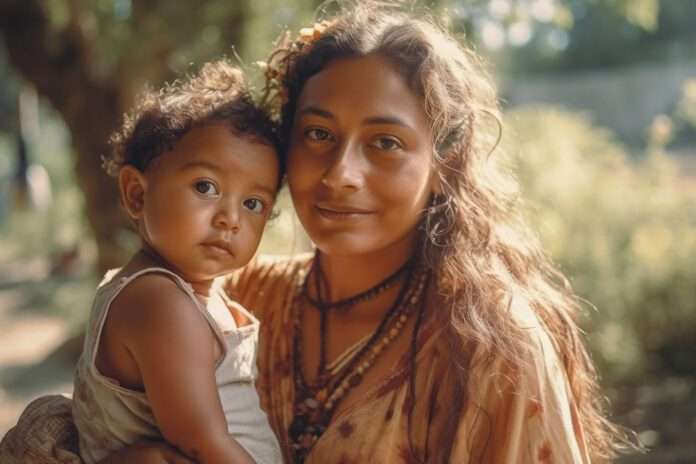In the eastern state of Odisha, India, lie the lands of indigenous communities whose livelihoods are deeply entwined with nature. This article sheds light on the rural livelihoods of these communities, emphasizing their reliance on natural farming, traditional cultivation practices, and the changing dynamics of their sustenance in the face of industrialization, population growth, and governmental interventions.
Table of Contents
Understanding the Traditional Livelihoods of Indigenous Communities
Indigenous communities in Odisha traditionally rely on natural farming and shifting/jhum cultivation for their sustenance. Their main crops include paddy, minor millets, and commercial crops like Niger. Additionally, they collect Non-Timber Forest Products (NTFPs) and engage in hunting and gathering. Historically, barter systems were prevalent for exchanging goods, highlighting their self-sufficient and community-centric approach to livelihoods.
Know More: Jarawas – The Indigenous Tribesmen of Andaman
Impact of Historical and Colonial Influences
During the British period, these communities heavily depended on forest resources for their livelihoods. Forest products and fuel wood were vital components of their sustenance. However, the rise of industrialization, intervention from outsiders, and a growing population posed significant threats, leading to the degradation of these resources.
The Shift towards Diversification and Government Schemes
With the depletion of forests and inadequate land holdings for agriculture, the indigenous communities had to diversify their sources of livelihood. Agriculture became an alternative, although insufficient to meet their growing needs. They started engaging in small industries and began to rely on various government development schemes, entitlements, and benefits to sustain their households.
The Role of Indigenous Women and Changing Dynamics
Women play a crucial role in sustaining their families by engaging in both caregiving and income-generating activities. Over time, these communities have formed Farmer Producer Organizations (FPOs) to strengthen their position in the market. However, challenges persist, especially regarding negotiation skills and exploitation by middlemen.
Sustainable Development and the Path Forward
In recent years, there has been a significant emphasis on sustainable development, considering the unique cultural fabric of tribal communities. The goal is communities while preserving their customs, values, and traditions. Various governmental and non-governmental efforts are being made to enhance sustainable livelihoods for tribal populations. These initiatives aim to strike a balance between economic development and environmental conservation, ensuring that the tribal way of life remains intact while progressing forward.
Conservation and Sustainable Use of Natural Resources
Traditionally, the tribal communities were the custodians of the natural resources they depended upon. They maintained a harmonious relationship with their environment, practicing sustainable use and conservation. Their intrinsic knowledge of local biodiversity enabled them to coexist with nature, preserving it for generations. However, modernization and external influences have disrupted this delicate balance.
Challenges to Livelihood and Sustainability
Modern challenges such as urbanization, industrialization, and privatization have drastically altered the tribal livelihood landscape. Forests, once a plentiful resource, have been exploited and depleted. Moreover, the unequal distribution of land and resources poses significant hurdles to the sustenance of indigenous communities. The need of the hour is to find sustainable solutions that empower these communities economically while safeguarding their cultural and environmental heritage.
The Importance of Non-Timber Forest Products (NTFPs)
Non-Timber Forest Products (NTFPs) have been a cornerstone of indigenous livelihoods. These products, ranging from fruits and seeds to fibers and medicinal plants, have been essential for both consumption and trade. Understanding their seasonal availability and maximizing their potential through value addition can significantly boost the income and sustainability of these communities.
Empowering Indigenous Women for Economic Growth
Efforts are being made to empower indigenous women, recognizing their pivotal role in sustaining households. This empowerment involves providing them with opportunities for skill development, access to education, and participation in decision-making processes. By enhancing their role in various economic activities and reducing gender disparities, we can foster a more inclusive and economically stable community.
Future Prospects and Collaborative Efforts
To enhance the livelihoods of indigenous communities in Odisha, a multi-faceted approach is needed. This includes promoting sustainable agricultural practices, providing access to modern technology, facilitating marketing linkages, and offering financial support through various government schemes. Collaborations between government bodies, NGOs, and local communities are crucial to achieving sustainable development goals and preserving the rich cultural heritage of these indigenous groups.
Conclusion
The livelihoods of indigenous communities in Odisha are deeply rooted in their unique relationship with nature. From traditional farming practices to the sustainable use of forest resources, these communities have a wealth of traditional knowledge that needs to be recognized and harnessed for sustainable development. By addressing their specific challenges, empowering women, and promoting environmentally conscious practices, we can work towards a future where these indigenous communities thrive while preserving their cultural identity and the environment.
Read More: Leaf Plates: A Sustainable Livelihood Option for Tribals


